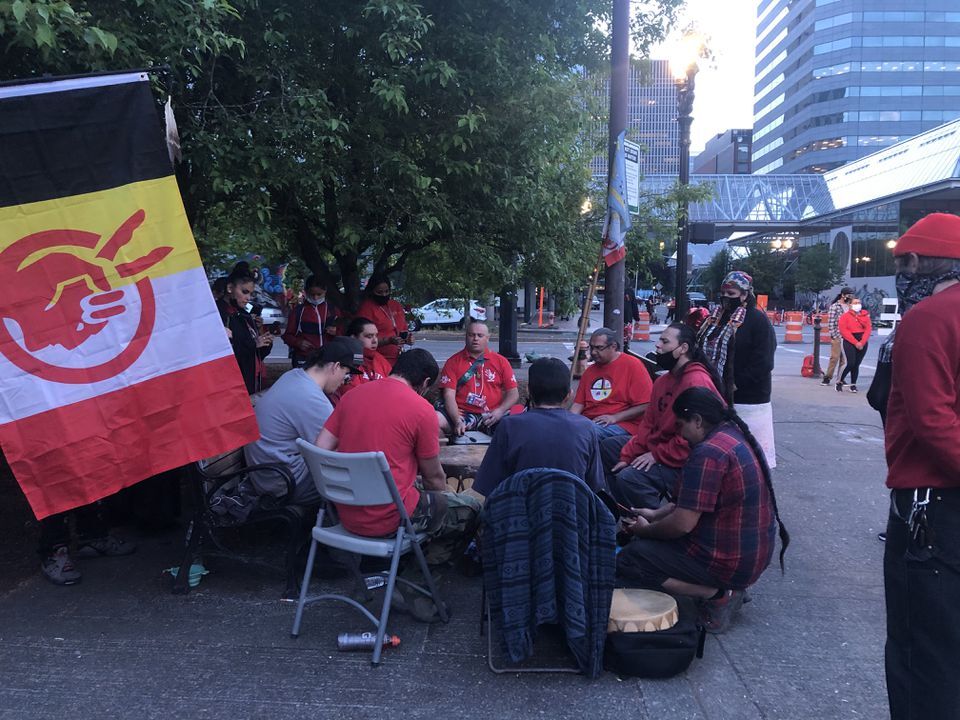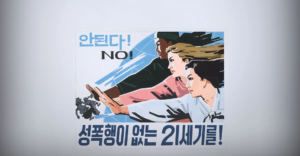Deavers called the violence against Indigenous women an “ongoing form of genocide, a genocide that has never ended.”
American Indians and Alaska Natives are 2.5 times more likely to experience violent crimes compared to people of other races, and more than 80% of American Indian and Alaska Native women have experienced violence in their lifetime, according to the Association on American Indian Affairs.
Sahme said that on his Central Oregon reservation, he knows of at least five missing person or homicide cases that have not been solved.
Karry Kelley, 56, said unsolved crimes against Indigenous people have been a part of her life as long as she can remember.
“Ever since I was a young kid, there have been people in our family who have ended up missing and never found,” said Kelley, who’s part of the Klamath tribes of Paiute and Modoc.
She said there are several open homicide and missing person cases involving members of her tribe.
Lilajane, a speaker from the Warm Springs and Yakama tribes, echoed Kelley’s sentiment.
“The knowledge that our families are under constant attack generationally is something we’re born with. We have generational trauma that goes back hundreds of years.”
Attendees of Wednesday’s event dressed in red and encircled the Salmon Street Springs fountain with bouquets of red flowers as drummers and singers performed Indigenous social and honor songs.
They cut out and wrote messages on red paper dresses, dotting the waterfront fence with prayers for relatives and Indigenous people who remain missing.
The event commemorated Missing and Murdered Indigenous Persons Awareness Day and came a little over two months after the U.S. Attorney’s Office in Oregon released its first missing and murdered Indigenous persons report as part of a nationwide initiative to improve law enforcement responses in such cases.
“The first step in seeking justice for missing and murdered Tribal victims is acknowledging the historical indifference to and neglect of these tragic cases,” Acting U.S. Attorney Scott Erik Asphaug said in a statement Wednesday. “A lack of data and jurisdictional gaps have caused many solvable cases to go unsolved.”
Former U.S. Attorney General William Barr launched the Missing and Murdered Indigenous Persons Initiative in 2019 to address missing and murdered Native Americans. The plan called for increased FBI deployment, improved data collection and analysis, and training to support response efforts nationwide.
The same year, the Oregon Legislature passed a bill requiring state police to conduct a study on improving the criminal justice response to cases involving Indigenous people — and adding resources for reporting and investigating cases of missing and murdered Native American women in Oregon.
However, the COVID-19 pandemic has slowed the state’s efforts. In 2020, statewide listening sessions with lawmakers, state agencies, law enforcement officials and tribal communities were cut short because of pandemic limitations on gatherings.
Deavers said she is waiting to see if such efforts make any difference.
“We don’t trust the American government,” she said. “They have a lot of work to do to show they are actually doing something that’s proactive and effective.”




